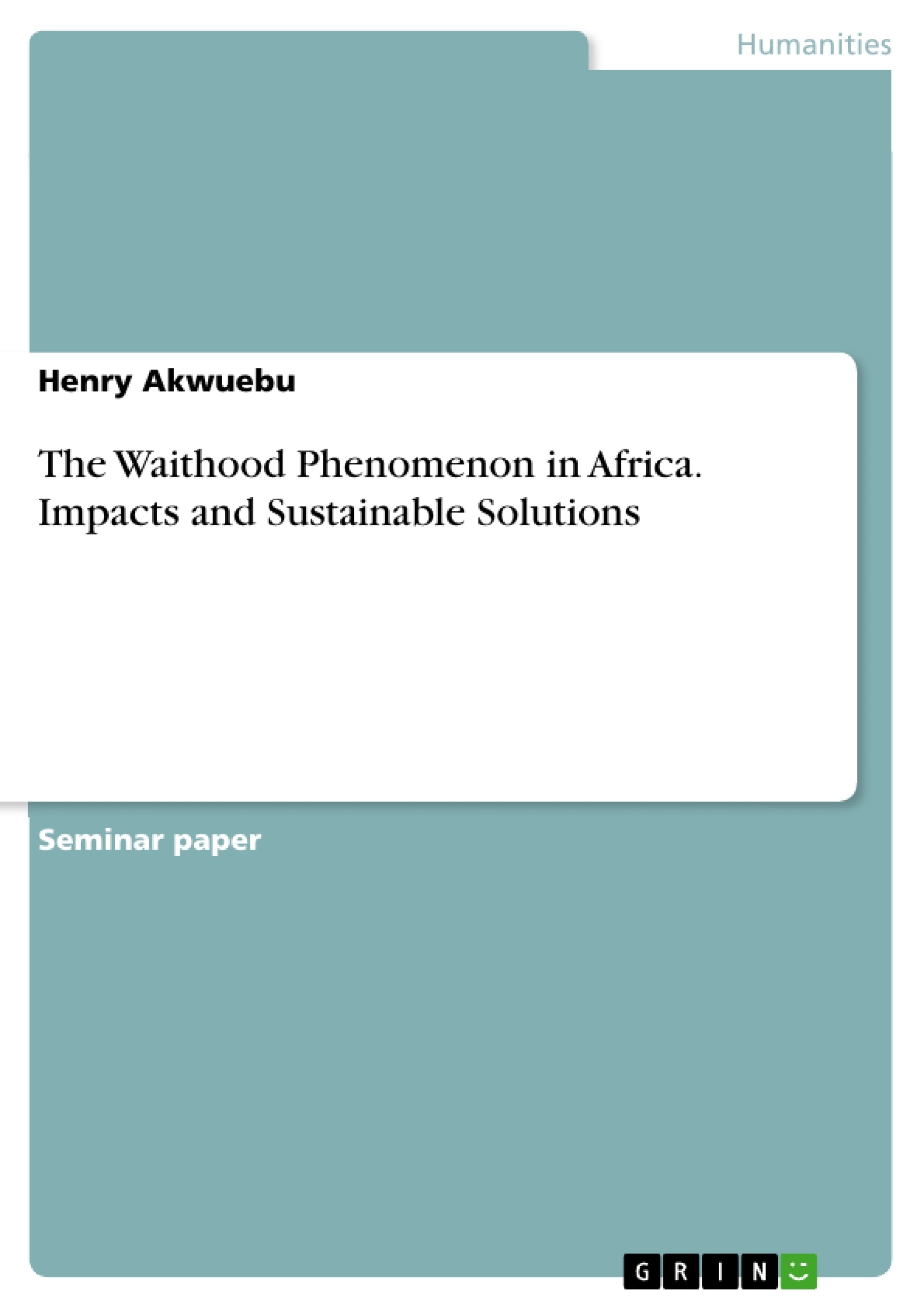Waithood (i.e. waiting for adulthood) is a multidimensional transition, which is more than just getting a job. It also involves other areas of lifelong access to learning opportunities, family formation, and civic participation. Young people in the dilemma of Waithood are incapable of becoming social adults and sadly many will never attain the economic autonomy that allows them to partake in the responsibilities that defines adulthood.
On the one hand, young people are no longer children in need of care, but on the other, they are still unable to become independent adults. While chronological age defines them as adults, socially they are not recognized as such. Rather than define youth on the basis of age categories (15-25 or 15-35 ), they are increasing being defined by social expectations and responsibilities .
Frequently asked questions
What is the main topic of this text?
This text primarily discusses the phenomenon of "Waithood" – the delayed transition into adulthood – among African youths, focusing on its causes, impacts, and potential solutions.
What is "Waithood" as defined in this text?
"Waithood" is described as a state of limbo between childhood and adulthood, characterized by a prolonged period of waiting to attain economic autonomy, family formation, and political citizenship. It is an involuntary and often extended phase.
What are the main causes of "Waithood" in Africa, according to the text?
The text identifies several causes, including a lack of visionary political leadership, conflicts, various forms of unemployment (underemployment and unemployability), outdated curricula in African universities, and neoliberal frameworks promoting consumerism.
What is the impact of "Waithood" on young Africans?
The severity of the impact depends on individual circumstances, but it generally leads to frustration, social unrest, difficulty forming families, and increased vulnerability to engaging in protests or even joining rebel movements due to a lack of opportunities.
How does unemployment contribute to the problem of "Waithood"?
Unemployment, including both underemployment and unemployability, prevents young people from achieving economic independence, a key marker of adulthood. The lack of meaningful employment opportunities is a primary driver of the "Waithood" phenomenon.
What role does education play in "Waithood"?
While education is important, the text suggests that outdated curricula and a mismatch between qualifications and available jobs can exacerbate frustrations. Advanced university qualifications do not necessarily lead to better employment prospects.
What solutions are proposed to address "Waithood" in Africa?
The text advocates for heavy investment in education, health, and employment opportunities for both men and women in rural and urban areas. It emphasizes the need to involve youths in all stages of planning youth policies and programs, ensuring their active participation in policy-making and national development planning.
Why does the text suggest that youth problems remain unsolved?
The text criticizes the lack of dedicated youth development structures within the African Union and ineffective implementation of youth policies by national governments. The older generation often plans initiatives for the youth without consulting with or involving the younger generation.
How are African youths impacted in nations with conflict?
Conflict has a huge impact on the ability of young people to transit from youth into adulthood as conflict leads to a loss in education years and compounds the problem of transitioning from school to work. The loss of education can also lead to high unemployment.
How can Africa make full advantage of its youth population to ensure future prosperity?
Africa can make full advantage of its youth population by investing heavily in education, health, and employment opportunities for men and women, in both rural and urban areas. It can also be addressed by youth development schemes.
- Quote paper
- Henry Akwuebu (Author), 2016, The Waithood Phenomenon in Africa. Impacts and Sustainable Solutions, Munich, GRIN Verlag, https://www.grin.com/document/338294



